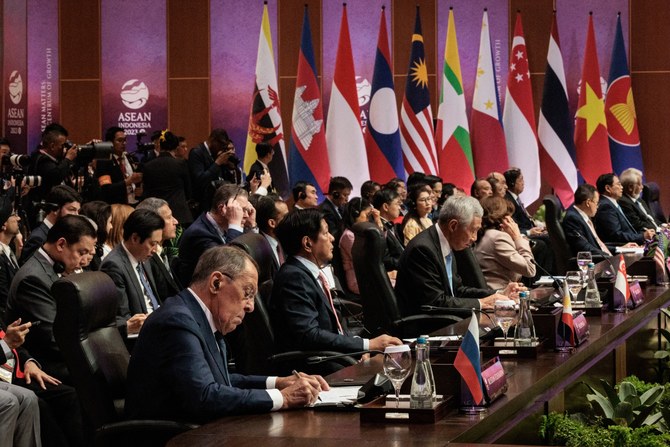
If anyone required any further evidence that the left and the peace camp in Israel are in mortal decline, they need look no further than the latest opinion polls. These make grim reading for those who hope that the Israeli left could rise from the ashes.
At a time when Israel is desperate for an alternative to the corrupt Netanyahu government, a left-leaning option just does not exist and is unlikely to materialize anytime soon. Despite Prime Minister Benjamin Netanyahu and his Likud party’s popularity being in freefall and the majority of those polled expressing their wish for the prime minister to retire from politics, support for his party is migrating even further to the right, to Yemina, which is mostly associated with the settlement movement, the drive to radically restrict the independence and freedom of the judiciary, regressive social views, and extreme hawkish positions on relations with the Palestinians.
Considering his corruption trial and his government’s disastrous mishandling of the coronavirus disease pandemic, the growing rejection of Netanyahu is only to be expected. Not even the historic normalization agreements with the UAE, Bahrain and Sudan have convinced the public that it is worthwhile sticking with him. However, there is a complete absence of any center-left/social democratic alternative with any chance of gaining power.
It begs the question: How come — after years of stalemate in the peace process with the Palestinians, growing inequalities and widening divisions in society, catastrophic mismanagement of the current pandemic, and corruption at the heart of government — a credible social democratic political force has not emerged? Instead, the Labor party, which dominated the Zionist movement from the 1930s, founded the state in 1948 and held power until 1977, is in a state of chronic decay and, since the last election, has all but disappeared.
The reasons for the dwindling power of the Israeli Labor movement can be traced to its dominance, together with its satellite parties, of every aspect of Israel’s political, economic and social life. It was a party that was, in essence, led by Ashkenazi Jews, with their origins in Central and Eastern Europe. They were in complete control of the society and came to be seen, with much justification, as arrogant, patronizing and discriminatory toward those who arrived just before or after the establishment of the state, and especially toward Mizrahi Jews, who have their origins in the Arab world.
If, in the early days of the state, Mizrahi Jews complied with the expectations of the ruling Labor movement and supported it as an act of gratitude for founding the state as a safe haven for Jews, and for the basic services the government provided them with, later they came to resent this system of patronage, which was characterized by elitism, arrogance and racism. Consequently, many Mizrahi people have, for a long time now, supported various right-wing parties.
Another reason for the banishment of the Labor-led left from Israeli politics is that it was too long in power and completely dominant, which led to widespread corruption — albeit of a much milder variety compared to what we have seen in more recent times under the rule of the right. It became a Labor movement that forgot its articles of faith, which were to represent the working class and the underprivileged, many of whom were of Mizrahi lineage, while the Palestinian citizens of Israel, whose support was also taken for granted, were not only patronized and discriminated against, but were forced to live under a system of military governance for the first 18 years following Israel’s independence.
Meanwhile, ongoing internal intrigues and splits gradually eroded and weakened the left, while energizing the right. One legacy of this state of affairs is that, in a country where more than a fifth of the population and nearly a third of all children live below the poverty line, staggeringly the left is shunned by these very people, who still see it as elitist and representative of the urban middle classes.
A further blow to the electability of the left has been the way it has handled relations with the Arab world, especially the Palestinians. If the Six-Day War led to a euphoric military victory, eventually it contributed to the disappearance of the Israeli Labor movement and the marginalization of the peace camp, as it released the ultranationalist, religious-messianic monster — a monster that now controls the discourse related to the Occupied Territories and relations with the Palestinians.
Only a handful of politicians on the left understood that there could be no benefit in indefinitely maintaining any long-term occupation, and absolutely no gain from annexing those lands and building Israeli settlements there. The only benefit that could have emerged from occupying the territories of its Arab neighbors, especially the West Bank and Gaza, was their utility as a bargaining chip in peace negotiations. Labor leaders tended to speak the language of peace, but were the first to allow settlements on occupied land. They wavered over the question of whether, to ensure the long-term security of the Israeli state, strategic territorial depth through maintaining the occupation was preferable to peace without these territories.
The Labor party, which held power until 1977, is in a state of chronic decay and, since the last election, has all but disappeared.
Yossi Mekelberg
This lack of genuine, full commitment to a two-state solution took hold among the highest echelons of Labor-led governments, even at the height of the Oslo process. Settlements continued to be built and others expanded, even while Prime Minister Ehud Barak was negotiating peace with Yasser Arafat at Camp David in 2000, and without an explicit commitment to a two-state solution. These intrinsic contradictions paved the way for the ideological right, as much as for the opportunist right from the Netanyahu school of thought, to take over Israeli politics.
In order to bring about a more just and equal society in Israel — one that would restore the democratic values of the state and reignite the peace process — there is an acute need for a progressive social democratic political force at the heart of the polity. However, for the foreseeable future, there is no left-leaning phoenix set to rise from the ashes of those who founded the country only to lose their way. This, unfortunately, is to the detriment of all Israelis and their occupied and blockaded next-door neighbors.
Yossi Mekelberg is professor of international relations at Regent’s University London, where he is head of the International Relations and Social Sciences Program. He is also an associate fellow of the MENA Program at Chatham House. He is a regular contributor to the international written and electronic media. Twitter: @YMekelberg
Disclaimer: Views expressed by writers in this section are their own and do not necessarily reflect Arab News" point-of-view












